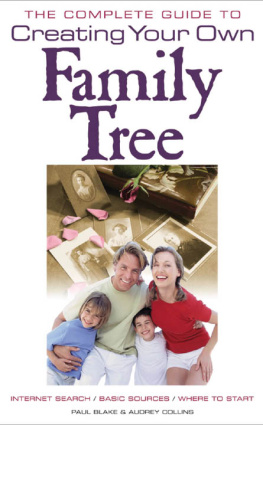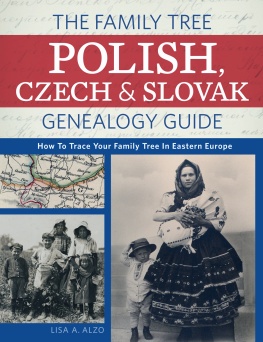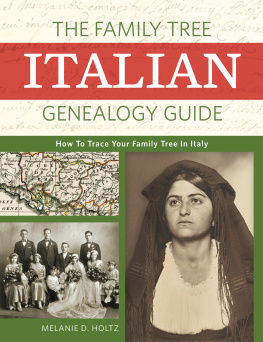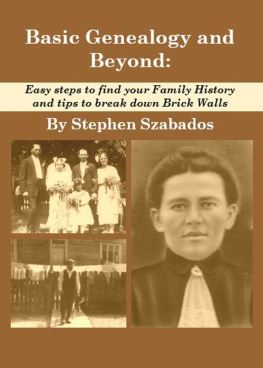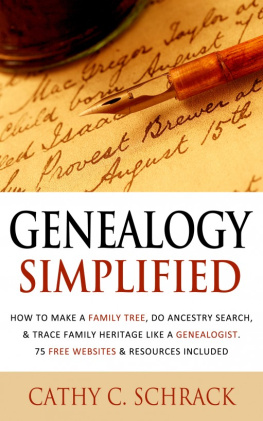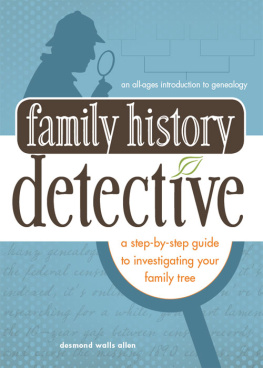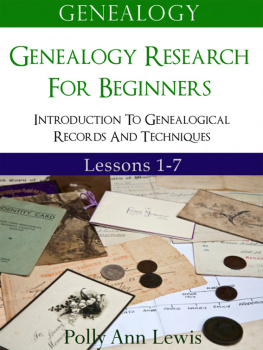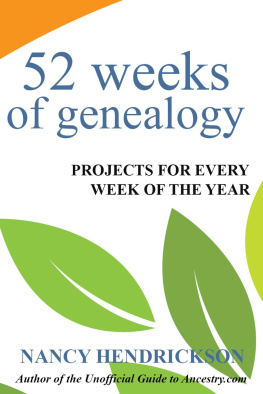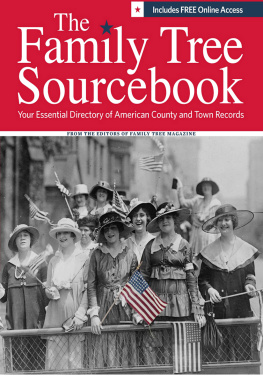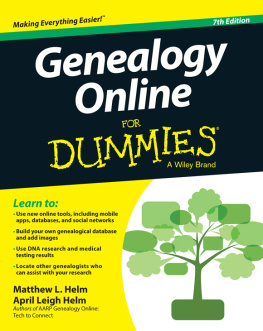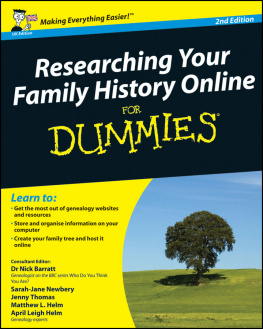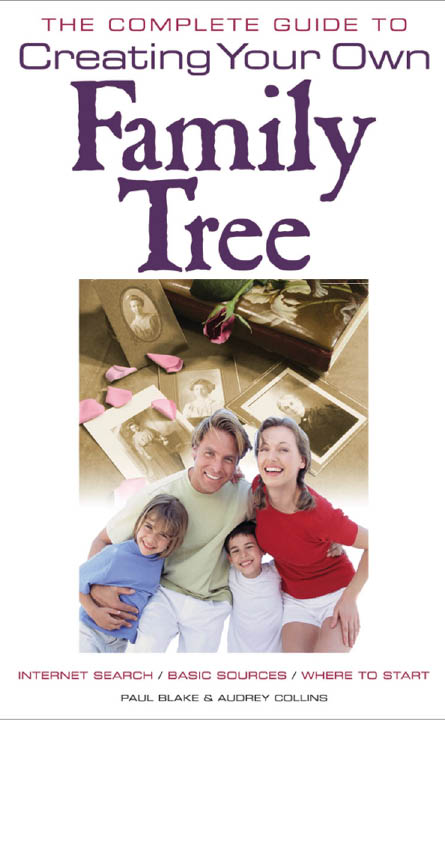First published in Great Britain in 2003 by W. Foulsham & Co. Ltd
The Copyright Act prohibits (subject to certain very limited exceptions) the making of copies of any copyright work or of a substantial part of such a work, including the making of copies by photocopying or similar process. Written permission to make a copy or copies must therefore normally be obtained from the publisher in advance. It is advisable also to consult the publisher if in any doubt as to the legality of any copyright which is to be undertaken.
W. Foulsham & Co. Ltd
Introduction

Genealogy to give it its formal name grips millions of people around the world. Once you start researching your family, who knows what may turn up? Few of us are related to the aristocracy or the famous, but understanding why and how an ancestor was sent to Australia for sheep stealing can bring history to life in a way that was rarely the case in the classroom.
So why does the past hold such fascination? There are many reasons to begin your own familys history, and these will influence the form your research takes. For example, you may wish to identify and contact living relatives, or there may be a family story you would like to prove, such as a connection with a famous person or event. If you have an unusual surname, you may want to trace its origin. Perhaps there is a branch of your family about whom you know little or nothing, because a parent or grandparent died young and contact was lost with the rest of the family.
The single greatest attraction, however, is probably to unlock the mystery of the past, to bring to life those enigmatic photographs of our grandparents or great-grandparents, to colour in the sepia tints in our imagination and find out what these people were really like and how they lived their lives. Where did they work? What was their home like? By delving into our family history, we can discover that the snappy 20s suit or voluminous Edwardian skirts cover people with characters just like our own!
Because, after all, our ancestors are a huge part of what makes us. While we all recognise the importance of our immediate family and our environment in shaping our characters, there is much in our own unique combinations of characteristics that comes to us from our inherited genes, passed down from one generation to another. Our ancestors give us our features, the colour and texture of our hair and skin and the shape of our face. We inherit the ability to move or think quickly, the probability of having twins, talents in the arts or sciences, music or mathematics. And we inherit behavioural traits, personality, generosity and meanness, kindness and cruelty. Abraham Lincoln may have said, I dont know who my grandfather was: I am much more concerned to know what his grandson will be, but possibly there isnt that much difference between the two.
It is a natural urge to understand who we are, and part of that understanding comes from where we come from. One of the major reasons family history has become so popular since the 1970s is that people feel that they have lost touch with their roots. Many families have moved from the areas where their ancestors lived for generations, and once close-knit families are now spread around the world. Knowing where we come from is a crucial element in our sense of identity. Alex Haley, author of the influential book Roots , wrote:
In all of us there is a hunger, marrow deep, to know our heritage to know who we are and where we come from. Without this enriching knowledge, there is a hollow yearning. No matter what our attainments in life, there is still a vacuum, an emptiness, and a most disquieting loneliness.
In many ways genealogy is the ideal hobby. It is something that you can pick up or put down when it suits you. After all, your ancestors are not going to disappear. There is no pressure to trace everybody you are descended from indeed it is nearly impossible. Most people only research one side of their family or a few ancestors who particularly interest them. And if one forebear is frustratingly elusive, well there are plenty of others out there for you to find. However, some researchers just want to tick off names with the bare minimum of information, while others, properly in our opinion, are more interested in finding out as much as they can about individuals. Its really all up to you.
The processes of searching, extracting and using information to build your own family tree can be very satisfying and even exciting at times. There really is nothing like the buzz you will get when, after months of searching, you finally find that elusive great-grandfather.
One of the great things about the pastime is how friendly and helpful most family historians are. If you get lost on your first visit to a record office, the chance is that somebody will be happy to point you in the right direction. Genealogists are a very sociable lot, and you will receive a warm welcome at your local family history society meeting or adult education class.
For some, family history leads them into totally new directions. Its an ideal way to learn about computing and the internet, while others become intrigued by aspects of local or military history and find that they devote more and more of their time to this subject. Whatever you do, and whatever direction you find yourself heading down, remember to enjoy yourself. Its a hobby after all!
Whether you want to build your own family tree from pure interest, or you have more specific reasons, this book will guide you step by step through the fascinating process of researching your family history. The place to start, naturally, is with what you know, so well show you how to collect and record the mass of information that is all around you and youll be surprised just how much there is to learn that way. You can then begin to trace back through the generations, learning and perfecting tried-and-tested research methods that you can then use to take your research wherever you want it to go.
The focus in this book is on English and Welsh ancestry because the other parts of the British Isles have different systems of registration and record-keeping. However, theres plenty of interest and relevance to those of us with ancestors from Scotland, Ireland, the Isle of Man and the Channel Islands, or even further afield.
And of course it is wonderful to be able to tell your children or grandchildren all about the life, work and loves of their grannys granny, who might well have witnessed events that otherwise would be dry and dusty entries in a history textbook.
How far back you will get with your family history research will depend on many factors. Not all records have survived for one thing if indeed they were ever made in the first place. You may become stuck at any point: this may be only a couple of generations back or in the sixteenth century. And probably stuck is the wrong word anyway, although it is the one that is always used. There is always the possibility that the vital record or piece of information will come to light many months, or even years, after you have reached that initial impasse.

